How well do you know our founder, Greg Mortimer (OAM)? Did you know that he’s one of Australia’s most distinguished explorers? It might sound like we’re a little biased, but the facts speak for themselves.
To rest our case, let’s take a look at some of the ‘firsts’ attached to his illustrious mountaineering career. He was part of the first Australian ascent of Annapurna II’s south face, one of the first of two Australians to summit Mt Everest, the first Australian to reach the summit of K2, the first to conquer Chongtar in China – at the time the world’s highest unclimbed mountain – and the first to summit Vinson Massif – Antarctica’s highest mountain. Need we go on?
Over three decades ago, Greg had a vision of sharing the wonders of the world's most remote regions with like-minded travellers, which led him and wife Margaret to found Aurora Expeditions. Since then, Greg’s adventurous spirit has continued to strengthen, and he continues to lead special Founders Voyages to the polar regions and beyond, sharing his extensive knowledge of these sacred places, tapping into his endless supply of stories, and infecting everyone he meets with his zeal for exploration.
Read our interview with him to find out more about the inception of Aurora Expeditions, his favourite adventures and wildlife encounters, his advice to travellers who are thinking about leaving their comfort zone, and his insights on the future of expedition travel and the responsibilities operators in this space have.
I believe that real experiences in the natural world, in places where you feel a bit uncomfortable, are becoming more and more important as the world becomes more and more virtual. You need to come face to face with powerful nature to understand your place in it. Expedition travel has an important part to play in that.
Greg Mortimer
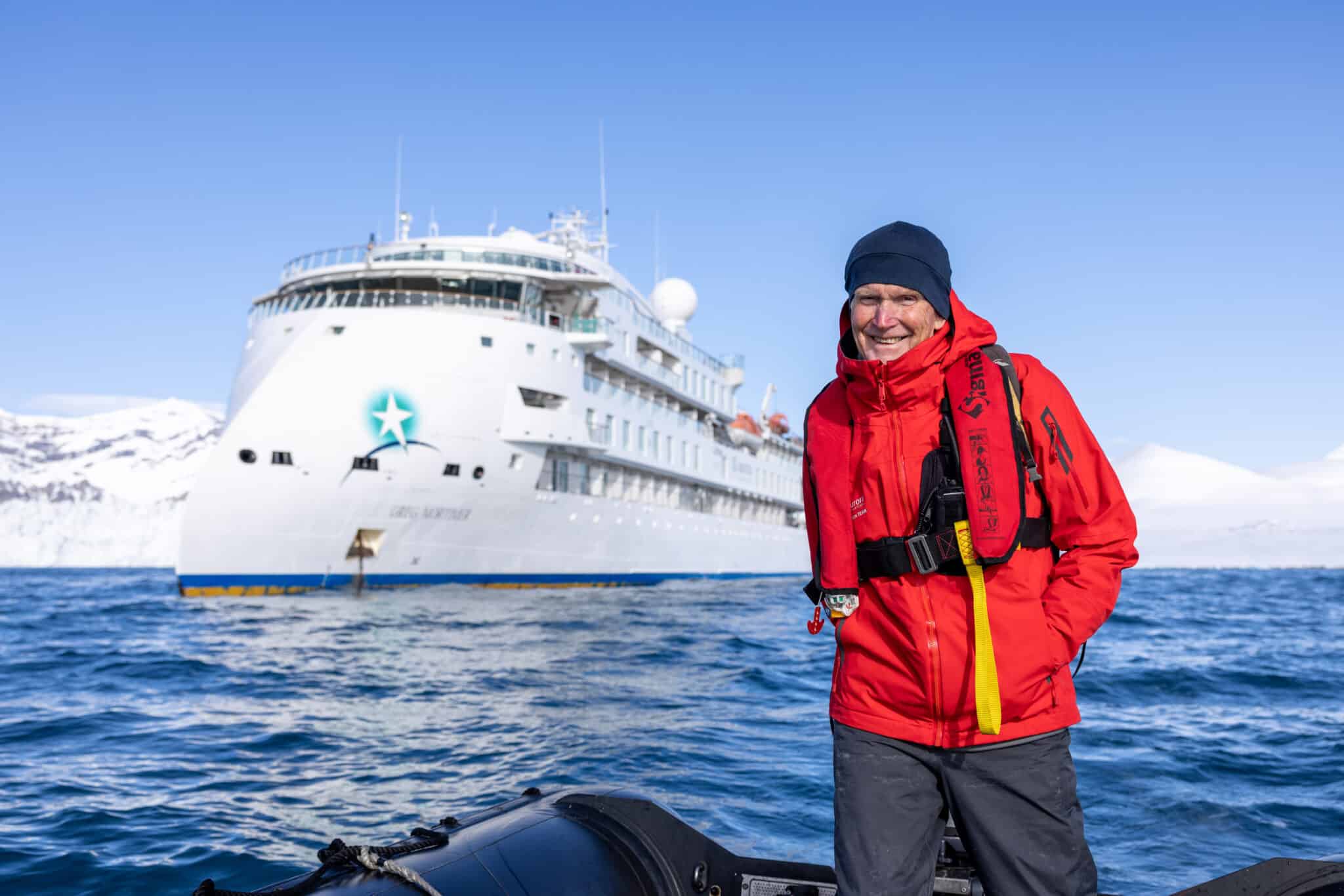
What ignited your passion for mountaineering and adventure?
I don’t know for sure how far back this desire goes but it was certainly kicked into life in the Boy Scouts. They took me on a rock climbing trip and I was hooked. Still am.
You’ve accomplished so many impressing feats. Which expedition or adventure stands out as the most challenging, or which had the most profound impact on you?
I find that every big adventure has a life of its own but sailing into the Ross Sea in Antarctica to climb the unclimbed Mt Minto was wonderful, a little crazy and life-changing. Climbing the mountain was very full-on but sailing across the Southern Ocean in a 60 foot yacht was outrageous. And it gave me a deep love and respect for the polar oceans.
Having said that, I can also recommend the view from the top of Everest or K2.
Can you share the story behind the inception of Aurora Expeditions?
In a nutshell, I was asked by a crazy friend, Mike McDowell, to lead a tourist expedition to the Antarctic Peninsula in 1991. This was on the first of the little Russian ships to come into the expedition cruising world. The rough and ready, strong and capable Professor Molchanov.
I had never done anything like that before so I was working hard to stay on top of leading a small group of adventurous-minded folk to Antarctica. And I just loved it! I loved the heady cocktail of having a Russian ice ship to play with in places that had never been visited by people before. But most of all I loved the impact it had on every person on the ship. Deep, meaningful, life-changing experiences for us all.
After those few voyages, I went home and said to my wife Margaret that I had discovered something that I loved and we could maybe make a business out of it. So with naivety, taking silly financial risks, we started Aurora Expeditions.
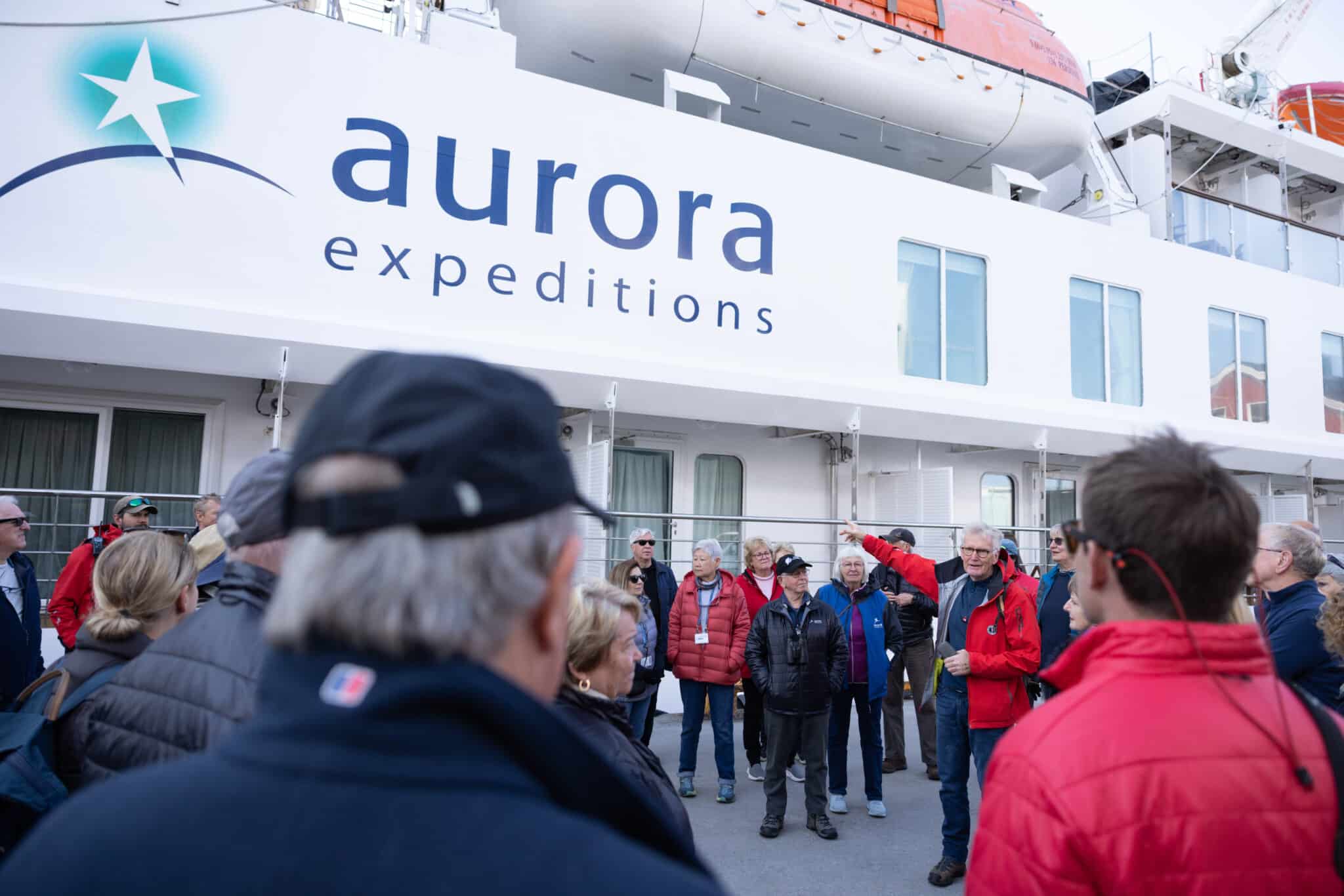
Can you describe the allure and challenges of exploring the polar regions, and what motivates you to continue these adventures with Aurora Expeditions?
The polar regions are disarming. Everything is a bit odd. The sun is doing strange things in the sky, the creatures are weird, and everything is defined by ice. So from first contact one is on guard. Whats more, the polar regions don’t treat fools gladly. They demand constant vigilance as there is always the prospect of a vicious storm around the corner. Added to that, taking a group of people into those places requires extreme care and each and every group has its own chemistry. The reward is seeing people, even the most jaundiced of city dwellers, open their minds and hearts to the power of nature's most powerful forces. With that comes a sense of humility which is deeply refreshing.
In your extensive expedition career, what have been some of the most remarkable wildlife encounters or natural phenomena you've experienced?
Standing 5 metres away from an orca hovering like a water polo player in a tiny pool of open water deep within the frozen Ross Sea. Seeing 23 polar bears feeding on a whale carcass on Phipps Oya on the north coast of Svalbard, some of them stuffed with so much whale meat that they could hardly walk. Seeing a 3-kilometre-long iceberg catastrophically collapse beside our ship in the Antarctic Sound. Watching the syncopated flight of a pair of Light Mantled Sooty Albatross out in the Southern Ocean. Watching the courting rituals of Wandering Albatross on South Georgia. Viewing the pile of seal blubber steaks against the wall of Shackletons Hut that have been sitting there since Shackletons men were in residence and realising that the air is so cold and dry that the meat is still preserved.
As an experienced Expedition Leader, what qualities and skills do you believe are essential for success in the remote and wild places we visit?
Most importantly you must really like people and have the mindset to listen to their individual needs. Be calm of heart and prepared to lock your ego away in a box. Have solid experience making decisions for other people in wild places. I tend to think that you should like and be prepared to take risks with people. But it must be done very, very carefully and wittingly.
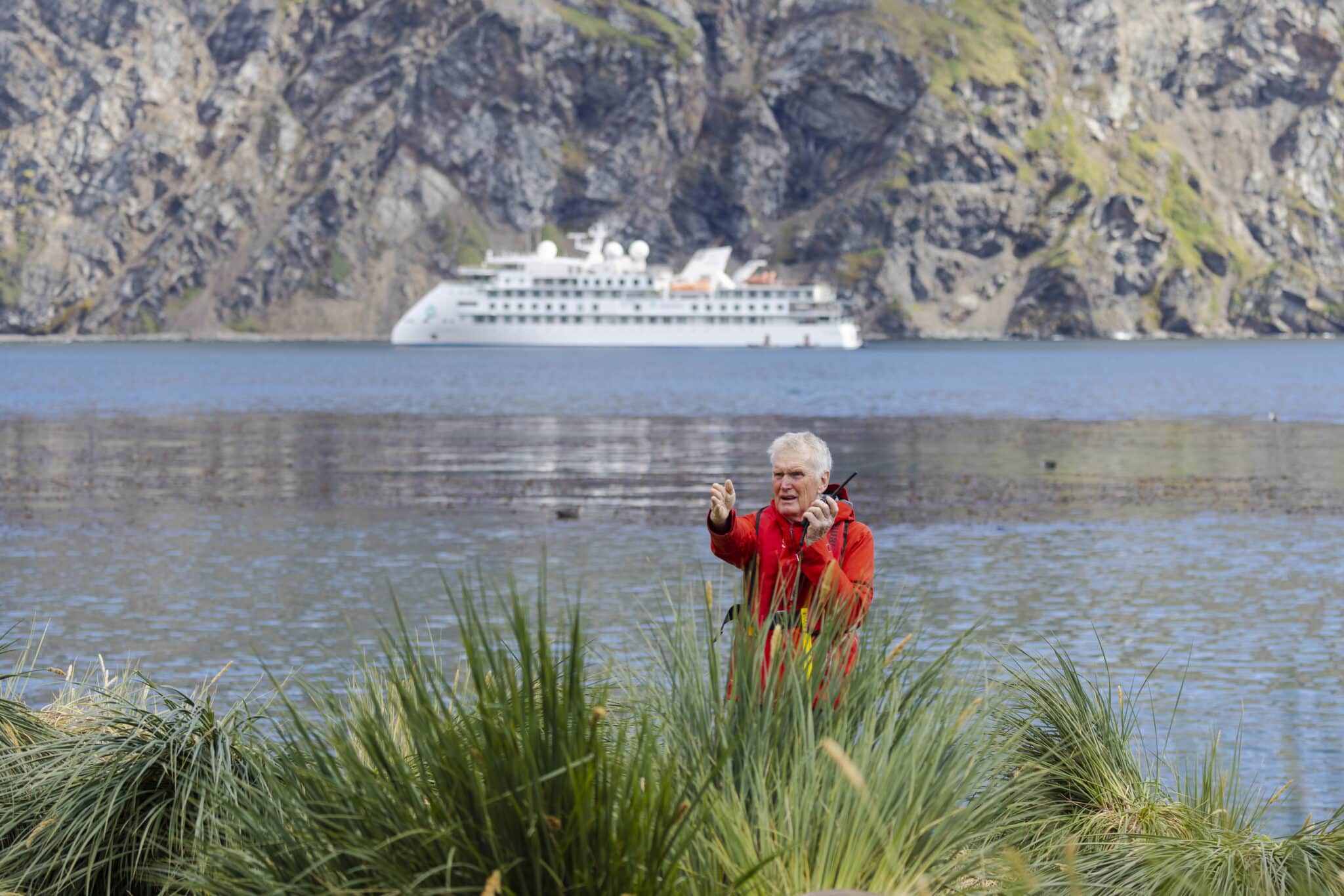
How do you see the future of expedition travel, and what role do you envision Aurora Expeditions playing in this evolving landscape?
I believe that real experiences in the natural world, in places where you feel a bit uncomfortable, are becoming more and more important as the world becomes more and more virtual. You need to come face to face with powerful nature to understand your place in it. Expedition travel has an important part to play in that. However, we must stay alert to having too many people in these sacred places. If there are too many people then we kill the wilderness values that bring us there.
I also strongly believe that the industry must be serious about reducing its carbon footprint. Those companies that fail to do that will be left behind. I am very proud of what Aurora is doing to measure, reduce and limit its environmental footprint. The whole company is geared towards that goal. It will take time but with constant measurement, incremental improvement and deep thinking, Aurora will continue to be a world leader.
How do you personally balance the desire for exploration with the responsibility to protect the world's most pristine and delicate ecosystems?
If you mean commercial activities then there are two main issues. Firstly, by keeping an eye on visitation numbers. For example, in the Antarctic Peninsula, we must keep our impacts at a level “that is less than minor or transitory”. Beyond that threshold, we must curb the numbers.
And secondly, expedition travel must take a long hard look at its environmental (carbon) footprint. It must be quantified and then lessened. After all, commercial expedition travel is discretionary spending when all is said and done. Unless we explore in a way that keeps our thin atmosphere happy then we must stop, sadly.
On a personal level, it is easy. I just walk out of my back door into the World Heritage Area of the Blue Mountains. There is a lifetime of exploring to be done there.
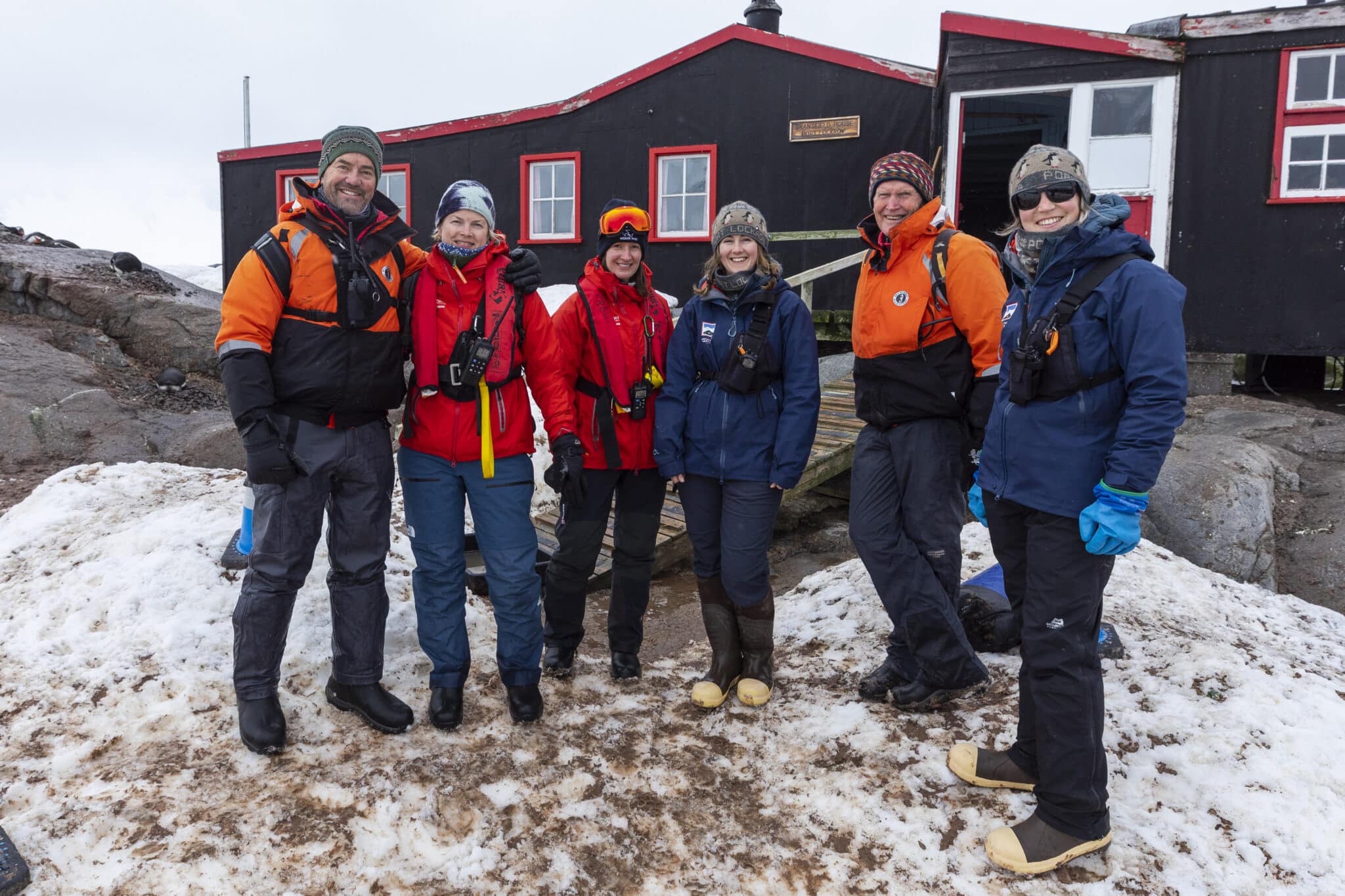
What are you most looking forward to about your upcoming Founders Voyages to Antarctica and the Arctic? What can expeditioners expect to learn from you on these special voyages?
Seeing South Georgia again and sharing it with like-minded people. For me, it is one of the three best places on earth and I treasure every visit there. Seeking out a few little unknown places in the Antarctic Peninsula will be fun. Then in the northern summer, spreading our wings on a bold exploratory voyage to the northeast corner of Greenland which is not in our mind-map.
If we can impart a sense of the fragility of our place in the world to these folk then that would be very gratifying.
What advice do you have for those who aspire to get out of their comfort zone and have a meaningful adventure, whether it’s climbing Mount Everest or taking the leap into expedition travel?
If you have that itch, I strongly suggest that you scratch it.
What’s next for you? Do you have any unfulfilled goals or destinations left on your travel bucket list?
Oh so many and not enough time. I have never been to Alaska and I don’t know the Canadian Arctic, for example. And I would like to look more at Kamchatka and the Kola Peninsula, north of Murmansk.
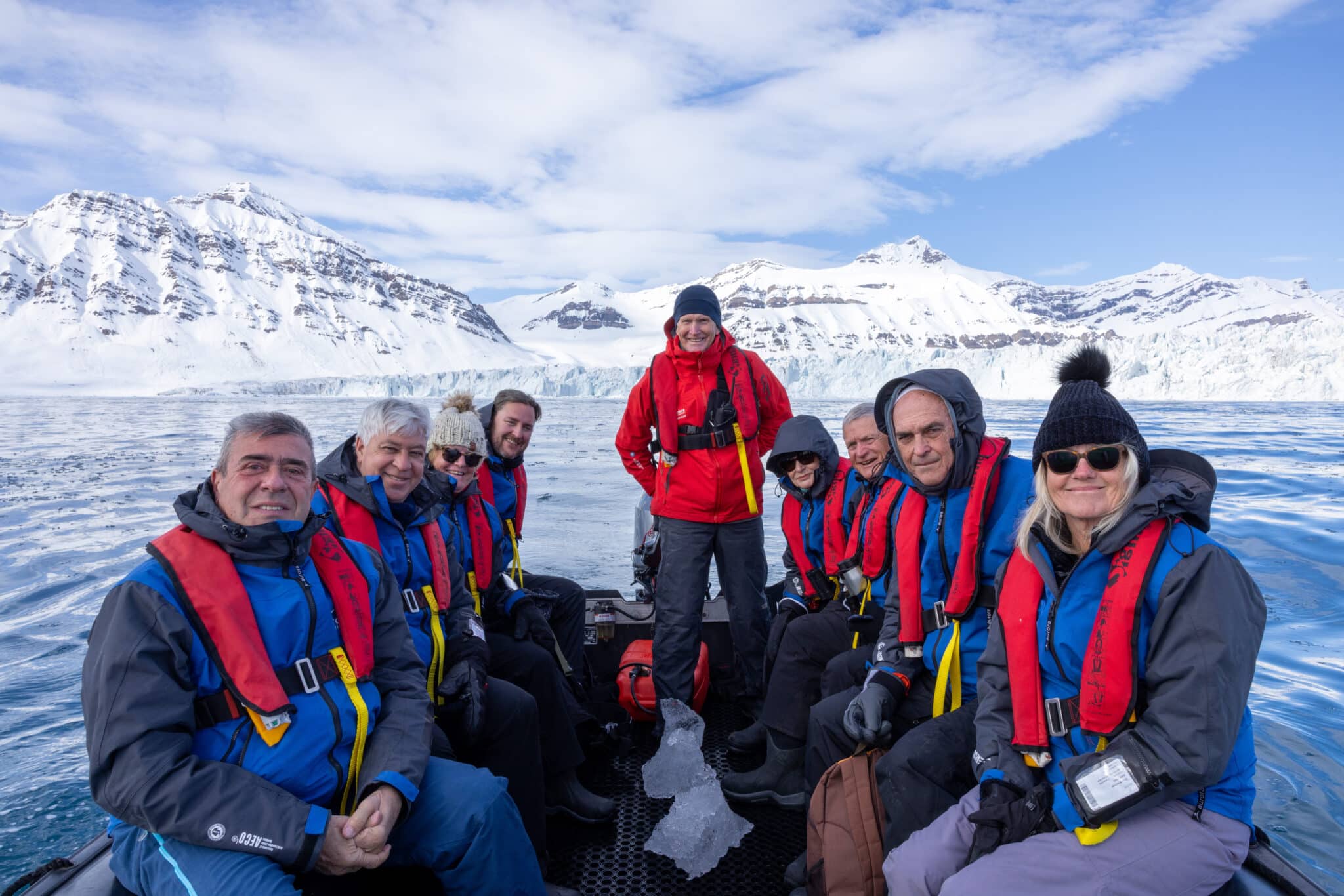
Interested in joining Greg on the next Founders Voyage?
Dive into the depths of adventure on our 24-day Arctic Complete expedition, with Greg Mortimer as your Expedition Leader, guiding you on extraordinary adventures and sharing his wealth of knowledge and passion for global exploration and discovery. Reserve your place by contacting our team of experts or requesting an online quote today.


.jpg?language=en&auto=format&w={width}&fit=fillmax)